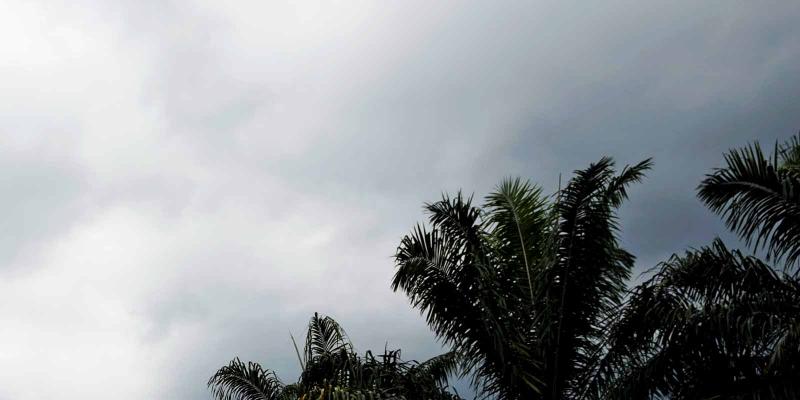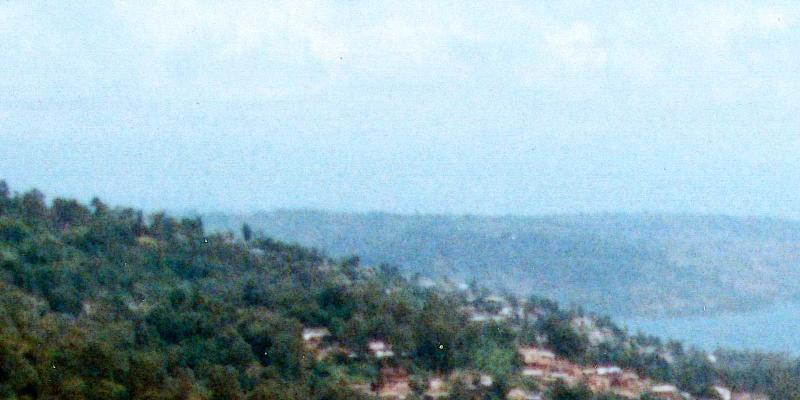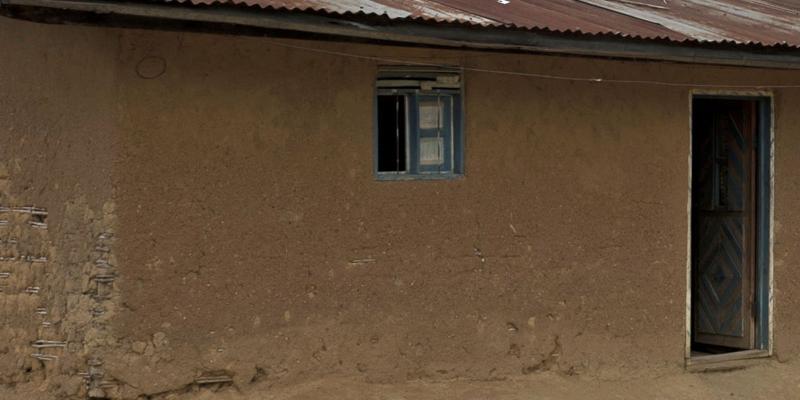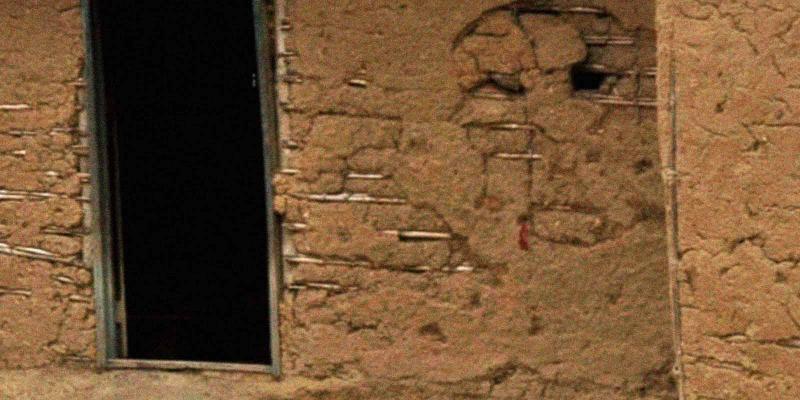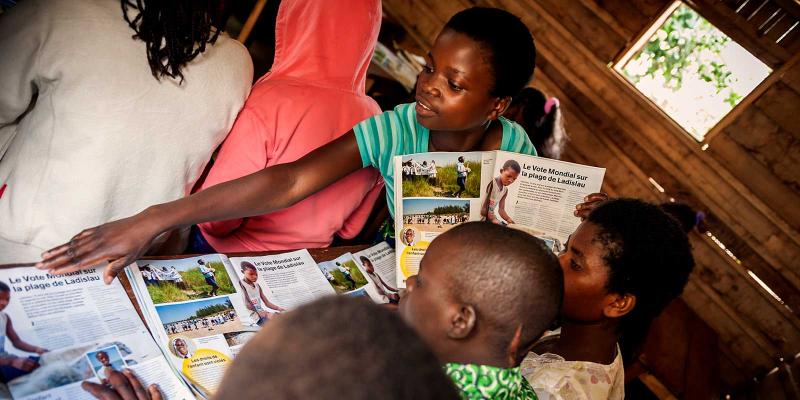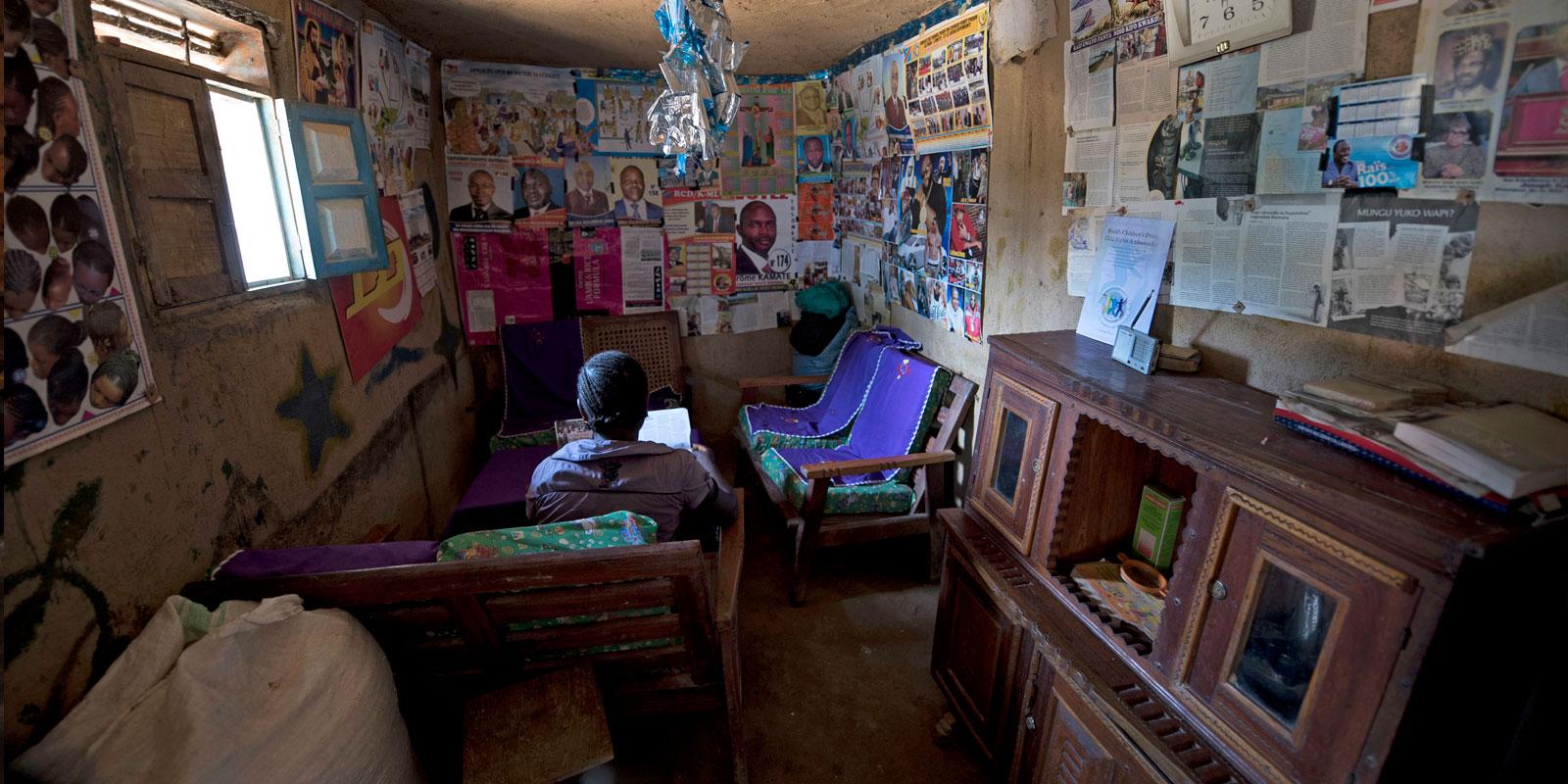
Mireille was kidnapped by an armed group in DR Congo and exploited as a sex slave. Today, she’s a World’s Children’s Prize Child Rights Ambassador who fights for girls’ rights.
“No girl should have to experience what I went through. I will fight for that until I die!” says Mireille, 16 (in a pink t-shirt above, talking to younger girls about her experience).
“The horror began on the evening of market day. As usual, we were sitting outside our house eating dinner, chatting and laughing. It was the same all over the village. People were eating and children were laughing and playing. It was a lovely evening.
But suddenly everything stopped. From the edge of the forest, by the village cassava fields, we heard machine gunfire. At first it was distant, then it got louder. I knew there was a war going on in Congo. I knew that soldiers attacked villages and kidnapped and killed people. But I always thought that those sorts of things happened to other people – not to me. In far away places, and not in my village. I had never really been afraid of the war.
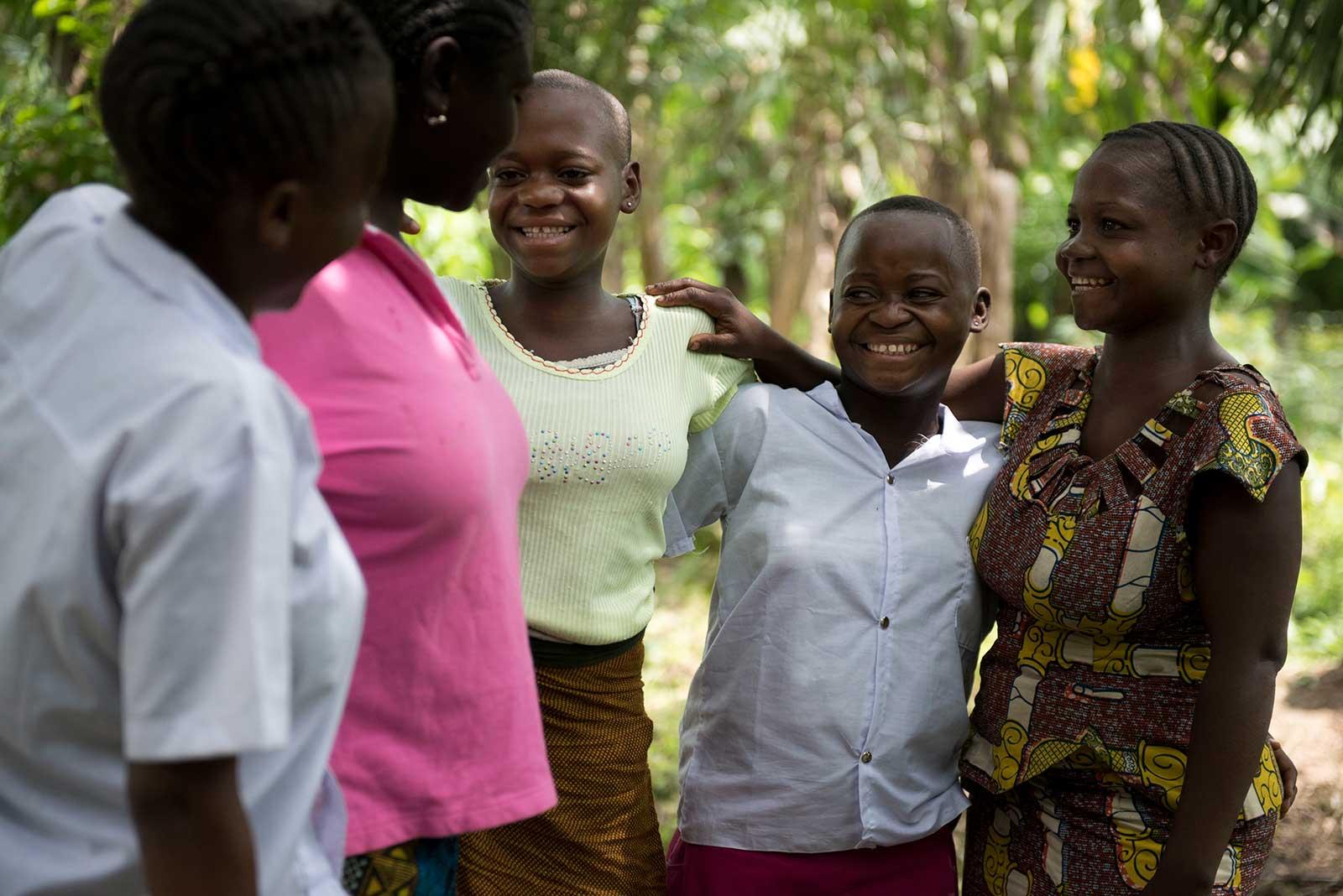
Like slaves
In panic, people tried to gather up their children and their pots and plates. We put out our fires and lanterns, and we all rushed into our houses to hide. We thought that if only we could stay quiet and pretend to sleep, maybe they would leave us in peace. We crept under the covers, but my younger siblings couldn’t stop crying. We tried to calm them down. I cuddled, patted and comforted them and eventually it worked. We could hear people moving between the houses. I was terrified, but I tried not to show it so that the little ones wouldn’t worry.
Suddenly someone kicked our door down. Two soldiers with machine guns and big machete knives rushed into the bedroom. They shone their torches right in our faces. When the soldiers saw me they told me to get up. But I was so afraid, I couldn’t move. Then they pulled me away from my mother roughly, saying:
‘If you cry or shout, we’ll kill you!’
Then they took my two sisters, who were eleven and seven. The soldiers bound our hands behind our backs and tied us together in a line with a rope. Like people used to do to slaves a long time ago.
Kidnapped
Our mother cried and begged the soldiers to let us go. They said that if she paid them they would untie the rope and set us free. But our mother explained that we were poor and didn’t have any money. So the soldiers shoved us out the door. We fell over straight away because we were tied up. When we got out the door we saw lots of girls who were tied up in the same way. There were sixteen of us, and many of the other girls were my friends. There were lots of soldiers, maybe a hundred. Someone yelled at us to start walking.
It was late evening by the time our long line entered the rainforest, heading up towards the mountains. It was dark, and hard to see where we were putting our feet. We kept falling and hurting ourselves. But the soldiers just shouted at us to keep going.
Exploited
Once we had been walking for several hours the soldiers ordered us to stop. They untied our hands, tore our clothes off and threw us on the ground. When we cried and shouted for help, the soldiers beat us violently with the butts of their rifles. At the same time they shouted that they would kill us if we didn’t shut up, or if we tried to run away. Then they raped us. My younger sisters were right beside me but I couldn’t help them. The soldiers took turns. When one was finished, another one would come along. It went on for ever.
We were not allowed to wash and or drink water. But they gave us soldier uniforms that were much too big. Almost all of us had to roll up our sleeves and trousers. They didn’t give us shoes, so we had to walk through the rainforest barefoot. As we walked, lots of the girls were crying, but when the soldiers threatened us they stopped. All except one.
Friend was shot
One of my friends, who I used to fetch water with from the well in our village, couldn’t stop crying. Although she was only a child herself, she was also a new mother. She screamed and cried in grief because she had been taken from her new baby. The soldiers got more and more annoyed. They warned her to be quiet or her shouts would reveal our location to our enemies. Finally they shot her and left her lying on the path. She was right in front of me, so I saw the whole thing. It didn’t seem real.
The next morning we hid among the trees. We were hungry and thirsty, but the soldiers didn’t give us anything. That evening we started walking again. That night the soldiers used us in the same way again.
Escape
Early the next morning, I discovered that the soldiers behind us were quite a distance away. Everyone was tired and walking very slowly. I realised we had a chance to escape. It was now or never. Along with one of my sisters who was walking right beside me, I turned and started to run into the forest, as fast as we could. Our youngest sister was somewhere else in the line and she didn’t come with us.
The soldiers started to shoot, and the bullets flew around me. There was gunfire everywhere. I was terrified, and threw myself on the ground. My heart was in my throat. I was sure my sister had been shot. The soldiers must have thought we were dead too, because nobody came after us. I could hear them walking on towards the mountains. I stayed on the ground for a long time. After what felt like hours, I cautiously stood up. My sister got up too. She had been lying just a couple of metres away the whole time. I was so happy!
Rescued
To begin with we ran as fast as we could, but soon we were just stumbling along. We were terrified that we would bump into some soldiers. I tried to comfort my sister, but I was so sad myself. All I could think about was our youngest sister, who was still with the soldiers. I thought they might have killed her as a punishment for us running away. At first we had no idea where we were, but gradually we started to recognise our surroundings. We walked towards the sunset, and late that evening we reached the village. When I saw my mother I started to cry and ran to her. We held each other for a long time. Our mother cooked food for us over the fire. Cornmeal porridge called ugali, and cassava. It was the best meal I had ever had.
I felt terrible and I couldn’t sleep. I had nightmares and kept waking up because I was so sad that I hadn’t been able to protect my youngest sister.
World’s Children’s Prize
There were soldiers near our cassava field, so our parents didn’t dare go and work in the field. They were afraid of being kidnapped or killed. Since we couldn’t earn any money, I had to quit school and so did my siblings. It’s so sad. I loved school.
We were afraid that the soldiers would come looking for us, so we moved in with our grandparents, who live somewhere else. Being in my old house made me feel sad because it reminded me of all the terrible things that had happened. After moving, I felt a bit safer, but I still didn’t feel well or happy. One day an organisation came along that works to support girls who are having a hard time. They wanted to know how they could help me. They told me about girls’ rights, and gave me a copy of The Globe magazine. I also heard all about the World’s Children’s Prize, and I really liked what I heard!
Child Rights Ambassador
Before reading The Globe I had no idea that we girls have rights. Suddenly, I realised that what the soldiers did to me and the other girls wasn’t just horrific, it was also a violation of our rights. A while later, they asked if I wanted to join a group of Child Rights Ambassadors for girls’ rights. I said yes straight away, from the bottom of my heart!
Now we ambassadors meet once a month. We read The Globe together and learn more about the rights of the child. Then we share what we have learned with others. I have started a WCP child rights club in my area, and we meet at my house every Tuesday and Saturday. At the start I told the group a lot about what happened to me when the soldiers kidnapped me. By doing that I hope to help the other girls to protect themselves. I don’t want anyone to go through that again, ever. Now I use The Globe a lot and try to teach people all I know about the rights of the child, especially girls’ rights. We read together and talk. And we support one another. We need that support, because it’s hard to be a girl in Congo.
Girls’ rights
Girls’ rights are violated in times of war. Because there is a war on in Congo, a lot of girls are suffering. Many are kidnapped by soldiers and abused in the same way I was. That’s why it’s so important to be a Child Rights Ambassador here, and tell people that we have a right to be treated well.
Many girls who have suffered violence at the hands of the soldiers don’t talk about it. Although none of it is their fault, they feel ashamed of what has happened. If word gets out that a girl has been abused in that way, it can make it more difficult for her to get married. Nobody wants her. That might be hard for me too, but I still talk about it. It’s so important that I can’t stay silent. Reading about brave girls in The Globe, who teach and help others, has given me the courage to talk about it. That inspires me. I will keep fighting for girls’ rights until I die!”
Told to: Andreas Lönn
Photos: Johan Bjerke
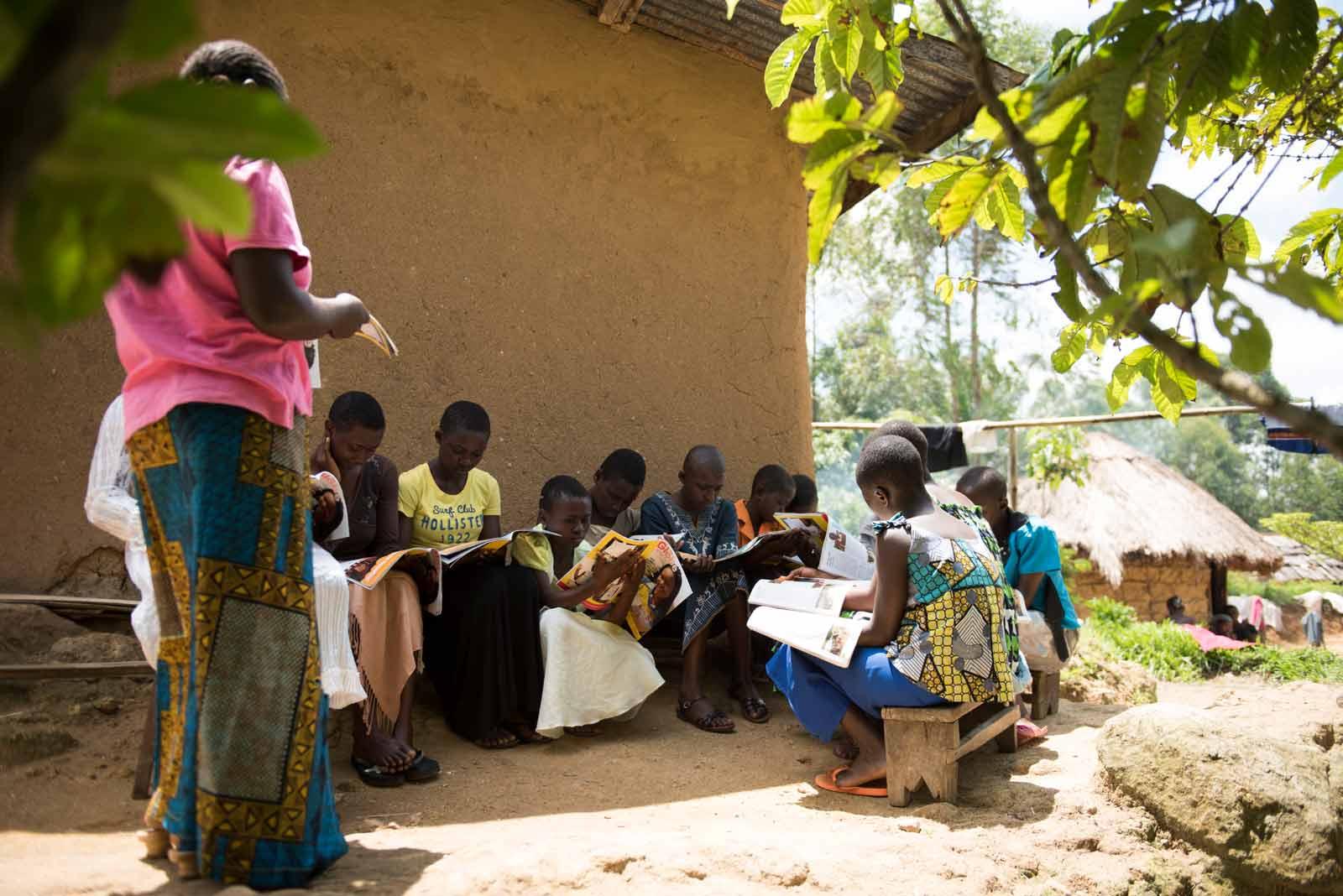
Related stories
Långgatan 13, 647 30, Mariefred, Sweden
Phone: +46-159-129 00 • info@worldschildrensprize.org
© 2020 World’s Children’s Prize Foundation. All rights reserved. WORLD'S CHILDREN'S PRIZE®, the Foundation's logo, WORLD'S CHILDREN'S PRIZE FOR THE RIGHTS OF THE CHILD®, WORLD'S CHILDREN'S PARLIAMENT®, WORLD'S CHILDREN'S OMBUDSMAN®, WORLD'S CHILDREN'S PRESS CONFERENCE® and YOU ME EQUAL RIGHTS are service marks of the Foundation.



